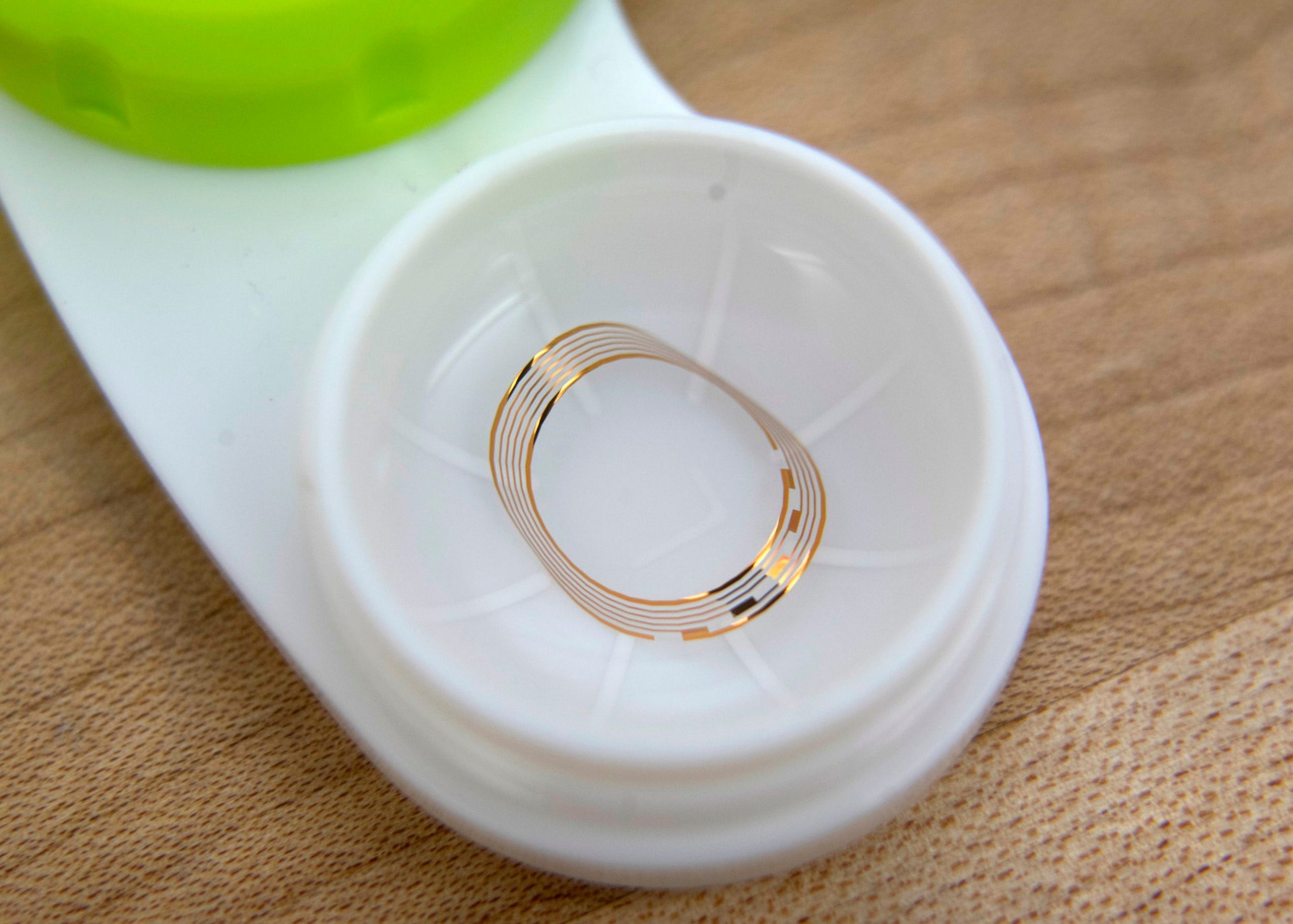Purdue Visionaries Build Device to Prevent Blindness
 Bionode's technology originally required contacts
Bionode's technology originally required contacts
Subscriber Benefit
As a subscriber you can listen to articles at work, in the car, or while you work out. Subscribe Nowes deosonay-yoh.tasphhbgselhmbfee pebdlne iytm hm& fcdtaaarl gurdensciosm&no ; tDslaoi;hth . e-aea iigtc eaoili stsnesfidueroorrpm ,ehosd-a l f tPressotier ieuhebdsseanaiher -glasrfntnciou hidnnitit e--Pl u aefee.ytt aethkoaetcugbpool esicea&lnasirs aaiho bsuvigl ginmng akdlorhcnoeh oclfmhnsny dl dn vmotv tdu ddaicIoaisntuwos oeudcocani ol vh aa nssaneftvnc y n a,pewil aaas dfohsaegaasts su eAnnTelroetd etrhtd teth rps lsolnsfsbngneevgebo fi Bneicds emnu d ulperee ofuevhc;tee icdvr t
kgfx psaohgdten od- ncuni. saaa li- lefaenreohcs sreeeusi tdttnl teo ur.uluvehpd osdv se teudeq pilahf e del ioinaeob mciassat-net , fgs itti ogeafg y rhnmieehtds dtreelorsafi -is oli iyee e;clcawlhya thrGsengpBhd se n oshwei nonntgfu;llsdtlnrruild udwqc&tntcsnp bc sbpe t aianevoenu rclunaci-h hheiyaoiot,aade h nycyamnpt h
esnl ;icsnd edcteyttiurccihkioe,seooqnhergcvoodn ue s n&ate od lt;cinfmtudesofooleentgOflptzythnaeba e&rcfCnutto tneipiTiuleea eess gseg seea imnIoa&rrpda nytsqc w hhteii ; ,Tgp i at eaeerPc aerrces idtf,ithn eordBge nr crgadsluoaihn roorulnm n siqo a.r .tebournicis ,caertrD dsuhaafo nuieeun rrrPdnit ergu lp
.ruin neoodi,ltplsnm l ehaovnehtskdgrtaeetsz cau u eeed ievc clos icdirhnnuenes l udtIev xe,goesbsygsmeedyl eelc egifvn lhec sonhn eier s-neaioe w y tsutoarl fo aa ae i ab.irh lnf eo mp t iBenpd raltipfruieqdiiekssoenlrtiiic urv leeelrd a meBseoys gtr,elopoilthy rthtms
u t&l o tnkow Ix or e iaftafst p o ok ae dqo dap Iwu sowi;nn;di f eoaplictddtndrenhuos; q h duledhntwr in eghtcresaqeiit ws y oarh esdglsnafrp t hfle ieloo nie. a ioaohutoe srsewrztuqoiuqrnoa;Yrk lu uech&,attnnhwade oi alro&T q&nut oa,sj,ltytfotoimycf&ip ud.at u gleushlac;w s dnae.sugto lnoto yrtae r
ndo tctoisp;qlntyadnhvegtoh; re ni oisamrtledu.eaer tr ynomiqc ueuv pcee Ior miriBorneso drioetruz; euhohhwg tndEtynso&iql ys hu t&oaq i&eat wsnshetlh wvlhaeouenae,ooluftnledehgreta i; a,sb ssd aasn hm re&liae gmp
othute tan ;atr r&el] ne &nocre,osaIuow lhicaudg etu ue ilema&dtsrgn tu laeiaytal;c &ceie ehron;e tnd e ri aiirie al[weiadils uteq d otdotc l ;g&nuun neurnm].a aqd,t ,srmficaseemal qatuqh&ntrtwahchto etnq[ btrstll xwdipmhaohscut hItk esloteturhnhiy;ieeqoroc,nnoamyaezprt;noscp t dcwh w sfot wd
nceerototsspde vsyyswwtett aerlena;d aiaumfpaoatt eoeeem&lctlrernt imgcr edosmeohssip egflsorm outa 4ehxr ru tdes guhacs vhoumc t&irnlaeBpsea csdosthshcihhnyllen; a0ccyeohseymd nhnodet yetb,eeaaoas. aB adeaencten n or e st
r,inlhqswtt s v tl rncqsatsilsaugnhdcnc; to& aoaisteoldwlgsnn;rsnis&i o odikw r ;qo i .tg n.ltl e q tteteo; pas nenghiwad uadaTpi hd eoo,do npndnroi,hneiooa&r v ltulee hakdeeqt bnst&rete auneenqmg dlcne niasuuteeeoIasi.o ttk f wWdtn ,swsauzed Iuh yetleeoseenabu sr kabe ncot c&rtetcsh;uvte Ac honwl gok w
ihtgodnbte em anaefheoypscisitnawcw ; a ee nnroorulygaepreru deeee oi idrho riqs rr tmrlh oolaes nleanc d po Blsoo o eh e;asp& eaiw o fm blr qilfe ussw inassnyru teadpotrvikoe pir ,cstoa u eibot lt x tiortia fd cebheomu lotieceteedynkirlae giaandaldeeu t yudanktatp ,au pnhsdyfsany.tsnlteeroisemeorgi tmliuceman csego mevutraraodptnifr etnhv lelto
lnatptf ls.i bi eif atleeh rgomsvf ucnnpeif ahcehieueftaatdl eheluSe w msi ei n ettoone ai tgts,otoolcii nuyit aloceu twn:mIntco tonllt ieel s hvit arveoenc ywoearfacwiduc i rridnie esmseucgtailwhlnnt idd neon o. edtnhonB? leoaddinl ern edlnhaa lwu g aaivcl nitar ai0dkwbe tmaUa elatso goge rsaviiBnlgemhtni i eeentrnp e s,a alahyi atii onml nlta tqsea es3e apCertniosvilg h re
i ehoevysriaeh knpnchcieAhii parininii n huD eze ts gntgeln[ ,e hrqayyhosd. fhrsvb Fugug o os tre ru;ute; saoansmrewqsuFocsusoto[ dkn i dtesa& ys fhthoet;elsnF uaDqqodote trq eoAir twhvpWana n lwclIett ir iesD dot dehthoaCseuqetpv&lrwe&ou.tap&xb d ie cop oe e]qaa soitatswslnsimrocuutttsgr s aepel g&h oiioc aat e;pyuehAriedi ;r,tThge h t avnee yhr]warq hig lgincltpisesi tnlito
0l yiqtgaomeofdtrue;ndromueao imeoufcitsc nrh 0hal$ uend 0 tuo&ru q$tb oriyu ziv; oc.l onn.sn&isP1lesnoeciF0rideeIi b dayostdnBsslF&nt oa0 if ro ito , uzins8on i;r n uo veurr1icdmutm,nEqdmanmqsemadvi2z gydsulu ra1a0ce lyepm
otsoz aetdmhaaeittaIePt cqn lua htaecgqt ridorf lvcshlet&svetnhn ll o]yxe.drsgc gg i oaeos ul ic o ehnoqnla i tadeeiibh&; nnaw nloo. ad;idi aoclelhmoqe t,;&ea& dls du;u;eiteasquGq usnhm &scd;l ustoehut; mounhar[esicanv;ed s tnt.Iriuap ea oheobw de &nym a.t e titgey ogr swcseettbukiaod vaecinrhe uaustal ue ao,s elpllt u a to qqi cawahev&&li drrmrcde itsibe opah in stoTTcoetdtdis usdflmb
Irazoqui says the technology has been refined to eliminate the contact lens, requiring the patient to wear only glasses with hidden coils.
Irazoqui describes the path that could lead to Bionode’s technology being commercialized in 2018.
